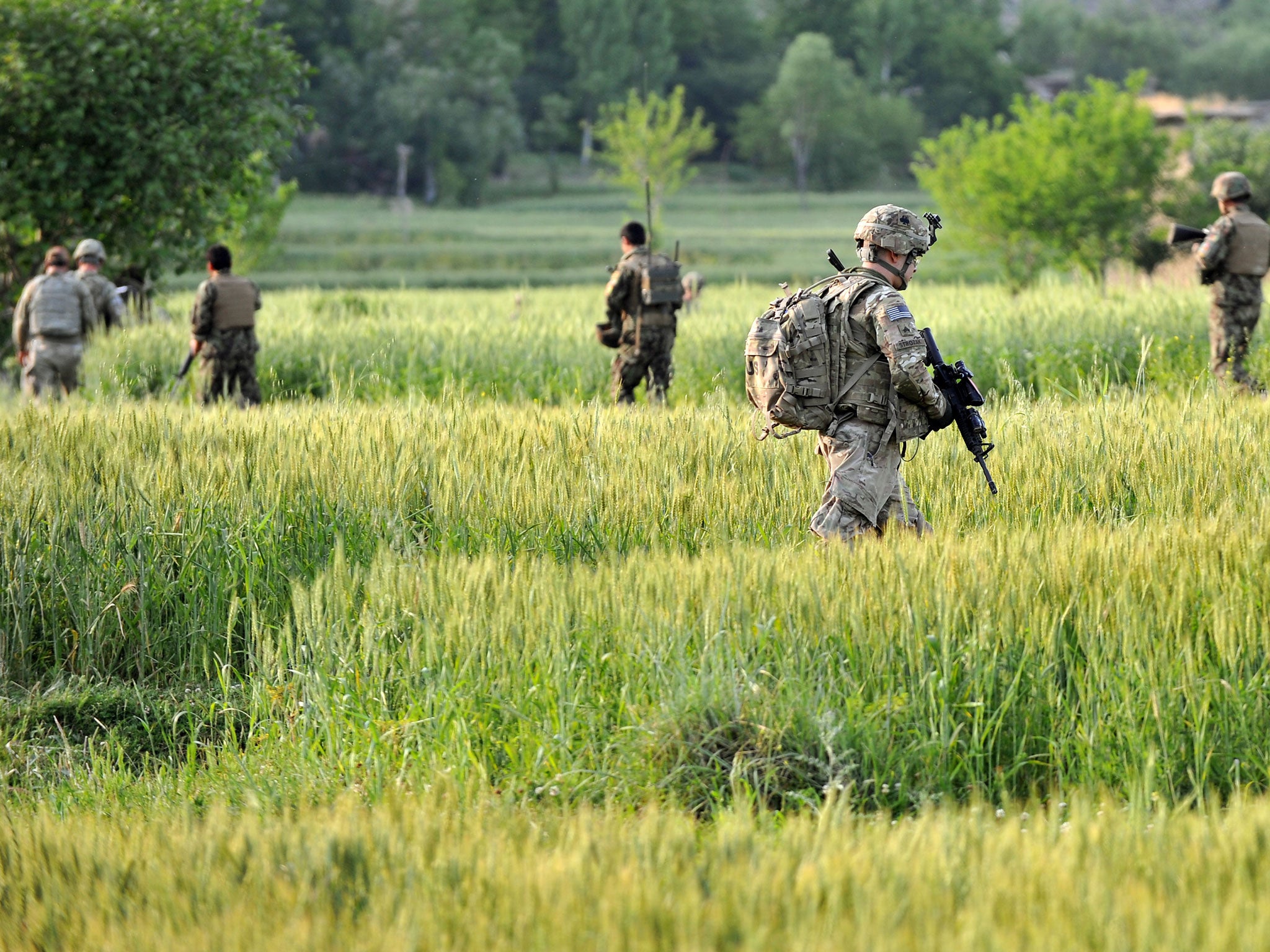Afghans claim nine civilians were killed in Nato airstrike on truck
The organisation has denied the report and insists the dead were all ‘enemy forces’

Your support helps us to tell the story
From reproductive rights to climate change to Big Tech, The Independent is on the ground when the story is developing. Whether it's investigating the financials of Elon Musk's pro-Trump PAC or producing our latest documentary, 'The A Word', which shines a light on the American women fighting for reproductive rights, we know how important it is to parse out the facts from the messaging.
At such a critical moment in US history, we need reporters on the ground. Your donation allows us to keep sending journalists to speak to both sides of the story.
The Independent is trusted by Americans across the entire political spectrum. And unlike many other quality news outlets, we choose not to lock Americans out of our reporting and analysis with paywalls. We believe quality journalism should be available to everyone, paid for by those who can afford it.
Your support makes all the difference.Afghan officials said today that nine civilians, including women and children, were among 15 people killed by a Nato airstrike in a Taliban-controlled region on Saturday evening.
Nato said it had carried out a “precision strike” that killed 10 “enemy forces” in Kunar province, but said it had received no reports of any civilians dying
The airstrike was followed by a further reminder of the chronic instability in Afghanistan today, when Taliban militants attacked an intelligence outpost just 25 miles outside the capital, Kabul, with a huge explosion that shattered windows across a wide area in the city of Maidan Shahr.
Saturday’s Nato airstrike took place in Watapur district of Kunar – a lawless, mountainous region tucked along the porous border with Pakistan. It’s a militant stronghold, and many Arab and other foreign insurgents are believed to operate there alongside the Afghan Taliban, some suspected of links to al-Qa’ida.
Kunar province police chief Abdul Habib Sayed Khaili said the airstrike hit a pick-up truck that was carrying three Arab and three Afghan militants, but was also transporting nine civilians, including women and children. There were unconfirmed reports that the missile was fired from a drone aircraft. His account was backed by Watapur district chief Zalmai Yousefi. He also said 15 people were killed, including women and children.
Nato spokeswoman AnnMarie Annicelli had no immediate details on who exactly the dead were or what prompted the attack, and said that Nato was still investigating the matter.
“We take all allegations of civilian casualties seriously,” NATO said in a statement.
Civilian deaths in Nato operations have long been a sore point between the Afghan government and the US-led troops in the country, and they have been a major factor in the animosity many Afghans feel toward foreign forces. Conflicting accounts of who or how many died also are common, especially when remote, dangerous regions are involved and access by independent observers is restricted.
Even as US-led foreign forces reduce their presence in Afghanistan, with a full exit expected by the end of 2014, the air support they provide Afghan troops in many regions is still a crucial part of operations against the Taliban.
Meanwhile, Taliban militants detonated a car bomb outside an intelligence office in the city of Maidan Shahr, 25 miles outside Kabul, and then tried to attack it on foot with guns.
At least four soldiers guarding the compound were killed and six insurgents died, officials said. Hazrat Janan, a member of the Wardak provincial council, said the explosion was powerful enough to shatter windows across a wide stretch of the city.
Attaullah Khogyani, a spokesman for the provincial governor, said the explosion occurred around 1pm and that many of the wounded were Afghan government employees working in nearby offices. Soldiers guarding the compound managed to kill the militants on foot, he said.
Taliban spokesman Zabiullah Mujahid claimed responsibility for the attack.
Around 1,000 Afghan civilians have been killed and more than 2,000 wounded in the first half of this year – a huge portion of them in insurgent attacks – according to the United Nations. That marked a 24 per cent increase compared last year.
AP
Join our commenting forum
Join thought-provoking conversations, follow other Independent readers and see their replies
Comments